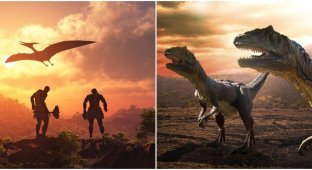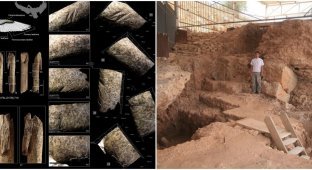Primeval paradise: is it true that in ancient times people lived happier than we do (9 photos)
It is believed that they spent only a couple of hours a day searching for food and hunting, and the rest of the time they sang, danced and had fun. 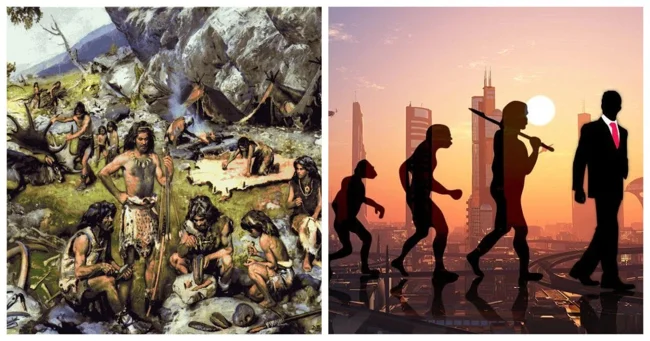
The modern world is obsessed with work. Everyone works hard: from heads of state to homeless people who rummage through garbage dumps in search of food. 
Some like their work, others not so much. But many would like to toil less. And here come various scientists who say that we have all become hostages of modernity and its frantic pace of life. But before...
There used to be a golden age.
Before agriculture was invented, our ancestors were hunters and gatherers. Men hunted game, women gathered berries, mushrooms and various roots. That's how they fed themselves. 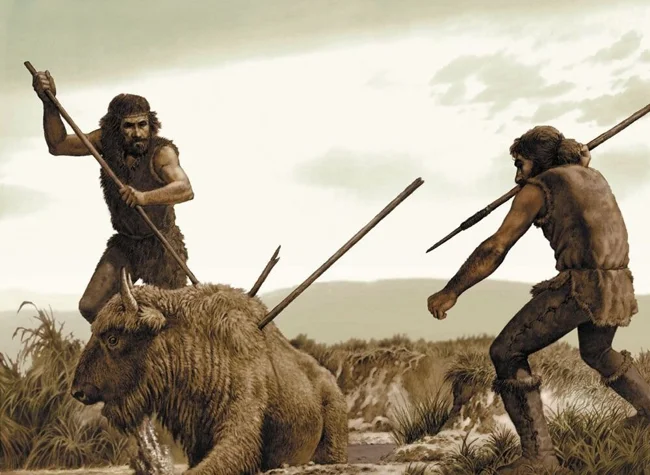
Collecting burdock roots and hunting took 2-3 hours a day, and cooking took the same amount of time. And the rest of the time people rested, had fun and sang songs by the evening fire. They ate strictly natural products, without any chemicals or pesticides, so they were tall, beautiful and healthy. They did not suffer from hemorrhoids, venous diseases, obesity or radiculitis. Domesticated cattle did not exist yet, and with them, the diseases that we later picked up from animals.
One group would gather 40-50 people, they would comb a vast territory and live in harmony with nature.
In short - a primeval paradise that we have lost. 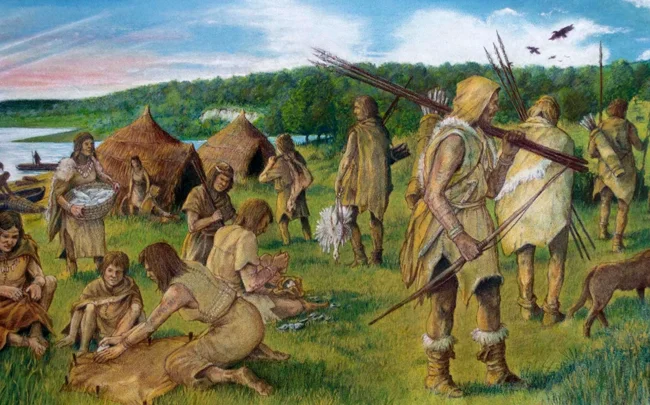
About 14 thousand years ago, agriculture appeared and the silliness with freedom ended. People switched to a sedentary lifestyle, learned to grow rice, rye and wheat, then domesticated cows, horses, sheep, goats and pigs. And the proud hunter-gatherer turned into a peasant with calloused hands and a hump from backbreaking work.
Soon the workers realized that someone would definitely want to steal their harvest, so they began to fence their settlements with walls and build cities. They no longer had the same freedom as before, plus over time an army arose to protect from neighbors (or attack them), which meant that military leaders, kings and other sovereigns appeared. They needed a whole staff of assistants, servants and hangers-on, and so the class of court nobility was formed. 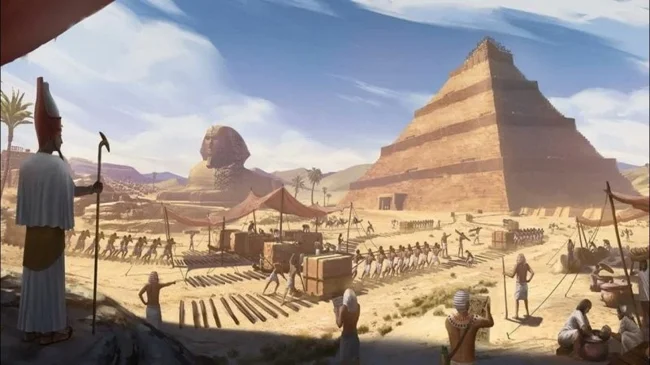
All these brothers had to be supported and fed - such an honorable task was entrusted to the peasants and they began to toil in the fields from morning until night. Therefore, hard and tedious work became the norm for the majority of the population in settled civilizations. 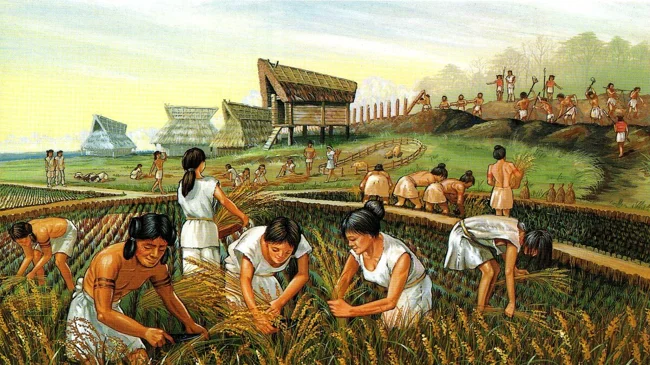
All this crept into Antiquity, then into feudalism, and later into modern capitalism. Now many no longer toil in the fields, but pay off loans for a car, a mortgage, or a brand new iPhone. These are the same balls, only in profile. Although a rural worker still works more than even a factory worker, not to mention office workers.
The most ardent supporter of the theory that agriculture made us slaves is Yuval Noah Harari. Although there were plenty of different researchers and authors of popular books about the “golden” primeval times before him. 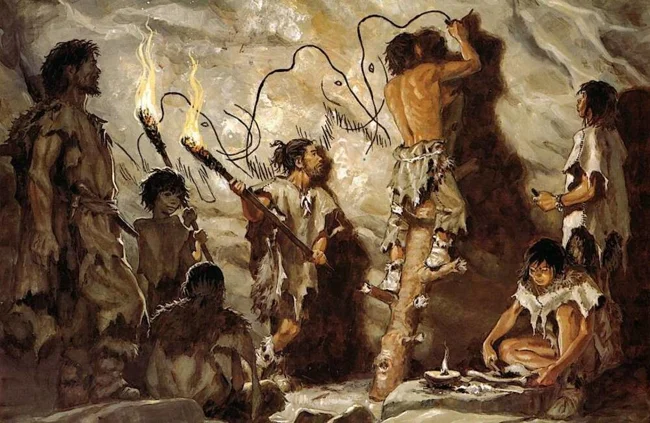
But in fact, ancient hunters often went hungry. They died from any illnesses, including inflammation of the stupid appendix or gumboil. And they lived on average 35 years. The thing is that hunting and gathering are extremely ineffective, in order to feed yourself, you need to comb through a huge territory. And it is not a fact that if you found or got something today, then tomorrow will be the same. If you don’t believe me, look at the fragments of antiquity in Africa, several tribes of gatherers still live there. For these guys, the Paleolithic is not over: they continue to wander around the savannah, collect roots and hunt prey. They live so-so. Or you can test the hypothesis on yourself: pull on goatskin pants, take a spear with a stone tip, and try to get something in a group of the same craftsmen.
And these fables about straining for 2-3 hours a day, and then relaxing and dancing around the fire do not stand up to criticism. To survive, you had to strain yourself constantly. And only hemp collectors could probably work a couple of hours a day, and then laugh and dance. But such tribes did not exist for long. 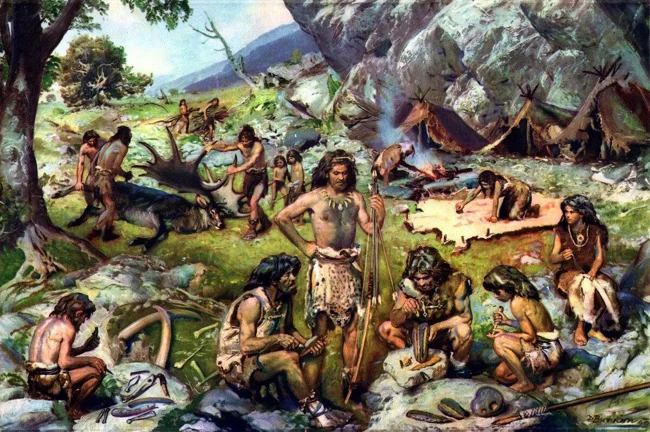
Therefore, as soon as the Little Ice Age ended, people abandoned their hated hunting and switched to a sedentary lifestyle. And it was they who built all subsequent civilization in different parts of the planet. And when writing appeared, humanity began to accumulate knowledge and made a sharp breakthrough. It led to the fact that we live in multi-story buildings, are treated by doctors, watch the news on our smartphones and read this post. 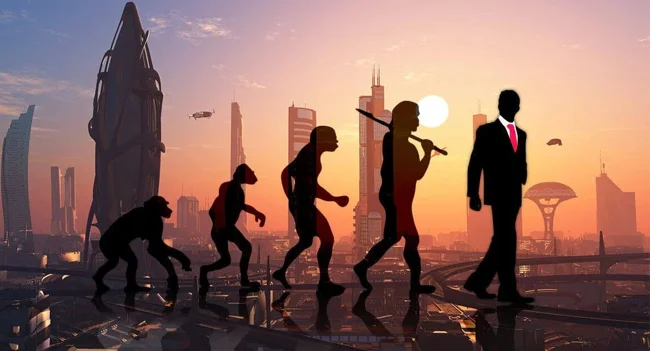
No gatherers were simply able to build or create any of this. So we have not lost any “primitive” freedom. And the “golden age of humanity” either. Most likely, it is still ahead.












